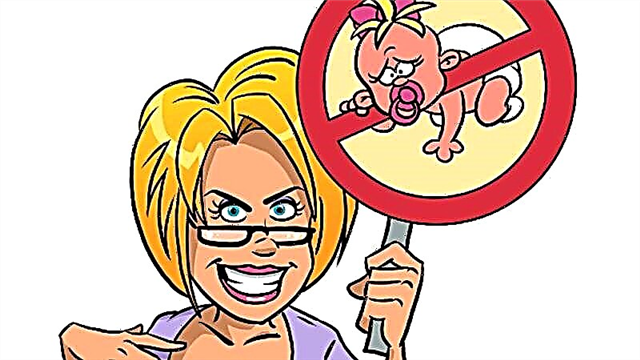When a child appears in a mother's life, she first establishes lactation. Breasts are offered at the first peep, even if the child is not crying because of hunger. Sometimes on-demand feedings are so frequent that the baby vomits, and by all indications the baby overeats. Whether it is possible to overfeed a newborn with breast milk, and whether overeating threatens obesity is the subject of controversy among many pediatricians.

Breastfeeding a baby
Is it possible to overeat on gv
There are different judgments on the questions that are relevant for most parents: can a newborn child overeat while breastfeeding, how to understand that he has eaten more than necessary.
The famous Russian pediatrician, Evgeny Komarovsky, warns young mothers: you should not constantly give the baby a breast, feed it and soothe it with food. The baby will be able to overeat not only on artificial or mixed feeding, but also on breastfeeding. The baby can not only get better by adding kilograms over the norm, but also get health problems.
Overfeeding symptoms
Signs that the baby has overeat cannot be overlooked. What symptoms of overfeeding can be:
- profuse regurgitation after feeding, which turns into vomiting;
- frequent applications (every hour or more);
- in weight, the baby gained much more than the age norms.
Increased gas production
If for every crying baby you give him a breast full of milk, then he will be prone to overeating. Overfeeding, in turn, provokes colic and high gas production, which will cause severe pain in the tummy. To avoid such consequences, you should feed the baby on demand, with such an amount of food that does not exceed the volume of the stomach.
Spitting up and overeating
Babies also regurgitate from the fact that they swallowed air during feeding. If you do not hold the baby in an upright position, then regurgitation is inevitable. However, if this symptom appears constantly after eating and at the same time turns into vomiting, then this indicates overeating. It is worth contacting a pediatrician to identify the causes of obesity, to further solve the problem. Often, babies also hiccup after overfeeding.

Spitting up after feeding
Note! Large weight gain is also considered a symptom of overfeeding. By the age of four months, the baby's weight, according to the norms, becomes twice as much as at birth. However, excess weight is quickly corrected when it is detected in time: either the baby subsequently begins to eat less, or the weight goes away by itself with increased activity of the child.
Reasons for overeating
Abundant food intake in babies on gv is a rather rare occurrence, since they eat exactly as much as they need to be full. It is for this reason that the majority of pediatricians, when asked whether it is possible to overfeed a baby on a clean guards, responds negatively, warning that it is worthwhile to be careful not to feed the baby with a mixture.
Still, the likelihood of gluttony on the guards is for the following reasons:
- Abundant production of breast milk. The problem is solved quickly enough: lactation is getting better, only one breast is offered per feeding.
- Digestive system problems. Many young mothers, when the baby cries, immediately give a breast, without thinking at all what was the reason for this behavior of the child. The baby does not refuse milk, even if not hungry, because sucking helps to calm the pain.
- A leap in growth and development. During this period, children eat more than usual, because the volume of the stomach becomes larger. It is not uncommon for two breasts to be emptied at once. Weight gain should be monitored.
The harm of overeating
Overfeeding leads to serious health problems, obesity, which is dangerous for babies. Overweight in babies occurs in only 3% of cases.
The consequences of overeating:
- immunity decreases;
- development is delayed;
- sleep is disturbed;
- emotional instability;
- disorders of the digestive system;
- diabetes.
How to understand that a child is full
When the baby is full, he immediately releases his chest, often falls asleep. So that the mother does not worry about a sufficient amount of food for the baby, you should pay attention to the condition of the child and the number of pounds gained. If everything is normal, you can let go of all experiences.

The rates of weight gain, growth in children under one year old
In the first month, the baby will eat milk in excess, because he is unfamiliar with the feeling of satiety. In the womb, food came to him constantly. As a rule, the extra crumb spits up, so you should not worry about overfeeding on the guards. The number of attachments should be monitored, not the volume of breast milk eaten.
Important! To make sure that there is no overfeeding, you should resort to a simple formula: the age of the baby (how many months he is) is multiplied by 30 and added to 30.
(X (number of months) * 30) +30 = maximum single dose of milk.
Is it obligatory to feed at night
How not to overfeed a newborn baby with breast milk and whether it is worth reducing the number of night feeds are topical questions, especially if the baby often wakes up at night.
In the dark, the production of prolactin is stimulated, an important hormone responsible for long and successful lactation. Therefore, feeding at night should not be canceled and reduced, over time the baby will develop a more structured, comfortable regime.
What to feed other than milk
Infants can be allowed as supplements only adapted, correctly selected with a pediatrician formula. Some babies may need soy mixtures (if they are allergic to milk protein), others may need lactose-free (if there is a lack of lactase).

Mix "Similak", included in the TOP-10 of the best mixtures in 2018
Important! Kefir, goat or cow's milk are categorically contraindicated.
The baby often asks for breast
Breast milk almost immediately enters the baby's intestines and begins to be digested. In the very first days after birth, the baby can ask for a breast every 20-40 minutes, which is not worth worrying about.
How not to overfeed breast milk
How not to overfeed a breastfed baby - set the daily regimen and feedings for the baby as early as possible. Subsequently, night feeds will become more rare, by six months they may completely stop. Despite the fact that the baby is fed on demand, there should be no more than 12 meals a day.
Application frequency
How not to overfeed a newborn with breastmilk if feedings are on demand? Clearly track when he is hungry and when he is full.
Additional Information. If less than two hours have passed since the last meal, and the baby cried, you should first exclude the presence of pain, an uncomfortable condition in him.
Newborns on pure gv can eat every 2.5 hours, those who are bottle-fed, eat less often due to a longer assimilation of the mixture. From the first days of a baby's life, it is worth taking seriously that he correctly captures the breast, then the feedings will be successful and will not lead to overeating.

Basic rules for successful breastfeeding
If the baby cries, then this is not a reason to immediately give him a breast. Tears can be caused by:
- not enough communication with mom;
- something worries, hurts;
- need to change the diaper.
Additional Information. In the first and second months, when lactation is established, the baby should be fed both at night and during the day on demand, without denying food. However, it is not worth putting the baby in the breast 30 times a day - during this period he eats and sleeps, therefore, after feeding, he needs to fully rest.
With artificial feeding, the volume eaten from the bottle is strictly measured, since the crumbs can easily overload the stomach with copious doses.
Duration of feeding
Most babies have time to eat in 10-15 minutes, some may need a little more time - 30-40 minutes. If the baby is weaned from the breast before it is emptied, then the baby will not receive "hind milk", along with important healthy fats.
Important! To prevent cracks on the nipples, the duration of feedings should not exceed 40 minutes.
Feeding frequency
Breasts are offered not by the hour, but at the request of the baby. In the very first days after birth, he sucks it very often, but in this case, milk production has not yet begun, the crumb is eating nutritious colostrum.
When milk arrives (usually 3-5 days after giving birth), the baby will ask for breast less often, maintaining an interval of 1.5-3 hours between feedings. Thus, the number of meals will be set within 6-10 per day.
In the international classification of diseases, a clause on diseases of infants, which are caused by overeating, was added. Overfeeding your baby is harmful and dangerous. To avoid negative consequences, you should regularly undergo an examination of the pediatrician, follow his advice and solve in a timely manner all problems associated with the overfeeding that has arisen.



